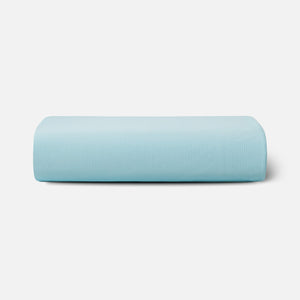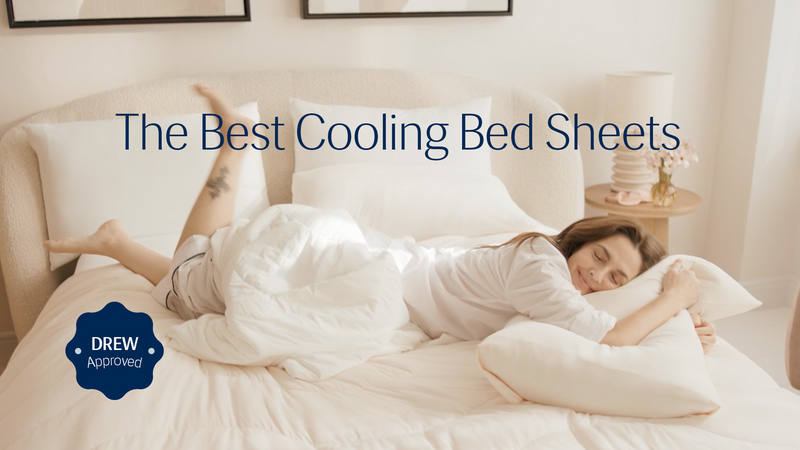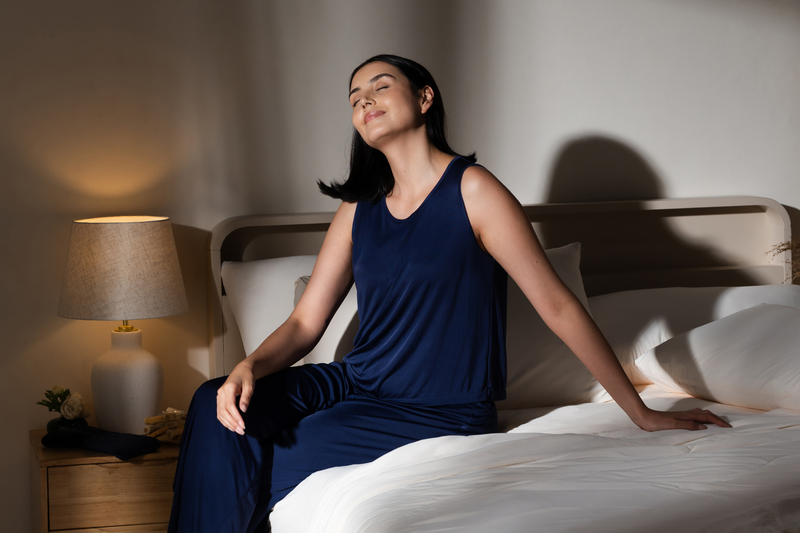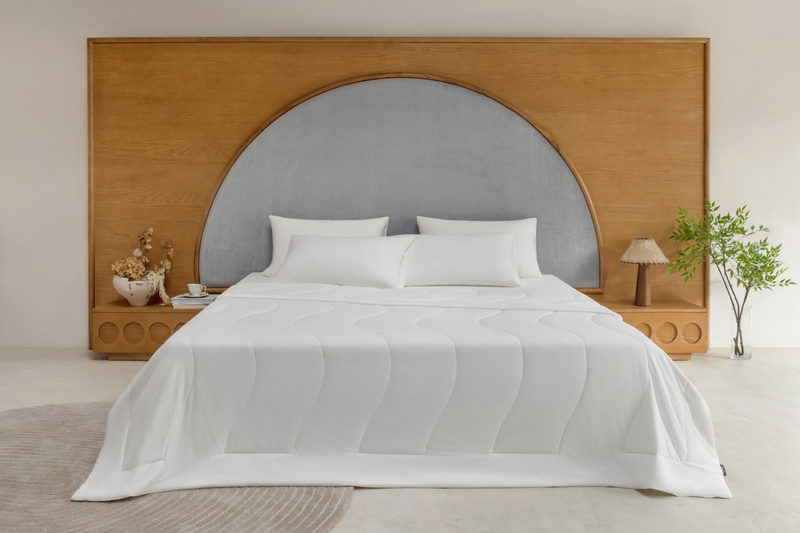Alcohol and Sleep: Why You Shouldn't Drink Before Bedtime

Does Alcohol Really Help You Sleep?
While a glass of wine or whiskey might help you fall asleep faster, it actually disrupts your body’s natural sleep processes. Alcohol initially lowers your core body temperature — mimicking the body’s natural cooling process for sleep — but as it’s metabolized, a rebound effect occurs. Your body temperature rises again, interfering with the steady cool state needed for deep, restorative sleep.
This rebound effect also impacts your sleep homeostasis, the system that regulates your sleep cycle. Alcohol acts as a sedative, helping you fall asleep quickly, but it also suppresses REM sleep and deep sleep. As the sedative effect wears off, brain activity rebounds, leading to fragmented sleep and frequent awakenings.
To avoid these disruptions, maintaining a stable sleep environment is crucial. The Rest Evercool® Cooling Comforter helps regulate your temperature throughout the night, supporting your body’s natural rhythms for truly restorative rest.
The Science Behind Why Alcohol Disrupts Sleep
A study conducted in 2018 found that low levels of alcohol consumption decreased sleep quality by 9.3%, moderate consumption by 24% and high level of consumption by 39.2% while also increasing sleep disturbances.

Alcohol impacts your sleep cycle in three key ways:
Suppressing REM Sleep
REM (Rapid Eye Movement) sleep is the stage where dreaming happens. It’s crucial for memory consolidation, cognitive function, and emotional well-being. Alcohol delays and reduces REM sleep, causing fragmented and shallow rest.
Disrupting Deep Sleep
Deep sleep is when your body restores muscles, tissues, and energy. While alcohol might initially help you enter deep sleep, it doesn’t last. As the alcohol metabolizes in your body, your sleep becomes more fragmented and light.
Increasing Wake-Ups and Early Mornings
Have you ever wondered, “Why do I wake up early after a long night of drinking?” This is because alcohol reduces sleep homeostasis, your body’s natural ability to regulate sleep. Once the sedative effect wears off, it triggers a rebound effect, waking you up earlier than usual.
Alcohol also increases trips to the bathroom because it’s a diuretic, leading to frequent interruptions and dehydration.
Why Do You Feel So Tired The Day After Drinking?
Feeling exhausted the day after drinking is common. Here’s why:
- Poor-quality sleep leaves you sleep-deprived.
- Alcohol causes dehydration, which saps your energy.
- Your body works overtime to metabolize alcohol, leaving fewer resources for restoration and repair.
The tiredness, grogginess, and headaches that linger are clear indicators that alcohol, far from being a sleep aid, disrupts your circadian rhythm.
Addressing the Myth: Is Drinking Yourself to Sleep Healthy?
No. Drinking alcohol as a sleep aid may seem harmless, but over time, it can lead to:
- Dependence: Using alcohol regularly to fall asleep can create a habit, making it harder to sleep without it.
- Poor Mental Health: Alcohol negatively impacts anxiety and depression, which are closely linked to sleep quality.
- Liver and Heart Issues: Even a little alcohol can burden your body, particularly before bed, when your systems should focus on restoration.
Alternatives to Alcohol for Better Ways to Sleep

If you’ve relied on alcohol to fall asleep, know that there are healthier, more effective solutions such as:
Create a Relaxing Bedtime Routine
Replace your nightly drink with calming rituals:
- Herbal Teas: Chamomile, peppermint, or valerian root can calm the body naturally.
- Warm Baths: A warm bath can relax muscles and lower your core body temperature for sleep.
- Reading: Ditch the screens and pick up a book to wind down your mind.
What to Drink Instead
If you’re looking for something soothing to sip before bed, try these:
- Warm Milk or Almond Milk: It contains tryptophan, which supports sleep.
- Tart Cherry Juice: A natural source of melatonin to regulate your sleep cycle.
- Water: Staying hydrated throughout the day prevents dehydration-induced wake-ups at night.
Improve Your Sleep Environment
Make your bedroom a sanctuary for rest:
- Invest in cooling bed sheets and a best cooling comforter for hot sleepers to regulate temperature, especially if you’re prone to hot flashes.
- Limit light and noise for deeper sleep.
- Keep your room cool; Evercool® cooling comforters can help regulate body heat.
Practice Relaxation Techniques
- Meditation: Apps like Calm or Headspace guide you through soothing bedtime meditations.
- Breathing Exercises: Slow, deep breathing can calm your nervous system.
- Progressive Muscle Relaxation: Tense and relax each muscle group to ease tension.
The Bottom Line: Is Alcohol Worth It?
While a drink might seem like a shortcut to sleep, the reality is clear: alcohol disrupts your body’s natural ability to rest and recover. Poor sleep affects everything—from your energy levels to your mental health and immune system.
So, the next time you’re tempted to pour a glass of whiskey or red wine to “help you sleep,” try a healthier alternative instead. Small changes, like upgrading to cooling comforters or sipping herbal tea, can transform your nights without the downsides of alcohol.
Quality sleep is the foundation of good health. By replacing alcohol with science-backed habits and creating an optimal sleep environment, you’ll support your body’s natural processes and experience the deep, restorative rest that alcohol simply cannot provide—leaving you refreshed, energized, and ready to face the day.







